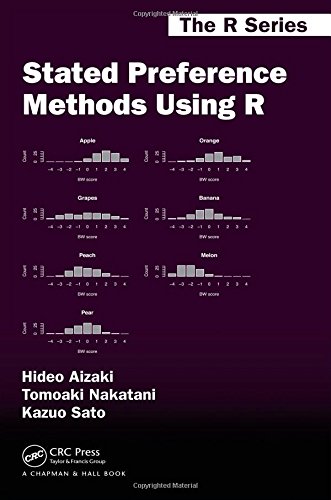

Most ebook files are in PDF format, so you can easily read them using various software such as Foxit Reader or directly on the Google Chrome browser.
Some ebook files are released by publishers in other formats such as .awz, .mobi, .epub, .fb2, etc. You may need to install specific software to read these formats on mobile/PC, such as Calibre.
Please read the tutorial at this link. https://ebooknice.com/page/post?id=faq
We offer FREE conversion to the popular formats you request; however, this may take some time. Therefore, right after payment, please email us, and we will try to provide the service as quickly as possible.
For some exceptional file formats or broken links (if any), please refrain from opening any disputes. Instead, email us first, and we will try to assist within a maximum of 6 hours.
EbookNice Team

Status:
Available5.0
40 reviewsStated Preference Methods Using R explains how to use stated preference (SP) methods, which are a family of survey methods, to measure people’s preferences based on decision making in hypothetical choice situations. Along with giving introductory explanations of the methods, the book collates information on existing R functions and packages as well as those prepared by the authors. It focuses on core SP methods, including contingent valuation (CV), discrete choice experiments (DCEs), and best–worst scaling (BWS).
Several example data sets illustrate empirical applications of each method with R. Examples of CV draw on data from well-known environmental valuation studies, such as the Exxon Valdez oil spill in Alaska. To explain DCEs, the authors use synthetic data sets related to food marketing and environmental valuation. The examples illustrating BWS address valuing agro-environmental and food issues. All the example data sets and code are available on the authors’ website, CRAN, and R-Forge, allowing readers to easily reproduce working examples.
Although the examples focus on agricultural and environmental economics, they provide beginners with a good foundation to apply SP methods in other fields. Statisticians, empirical researchers, and advanced students can use the book to conduct applied research of SP methods in economics and market research. The book is also suitable as a primary text or supplemental reading in an introductory-level, hands-on course.